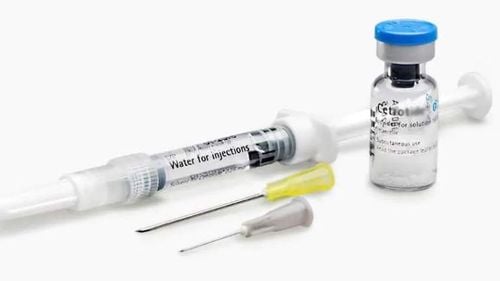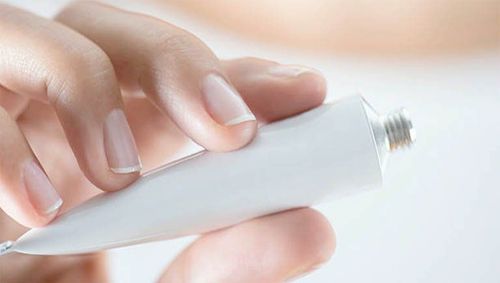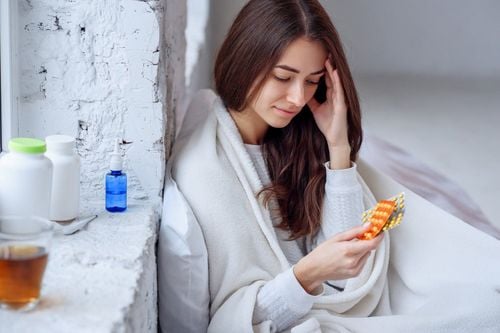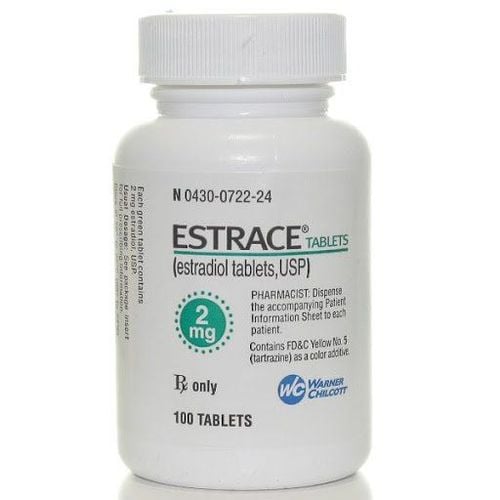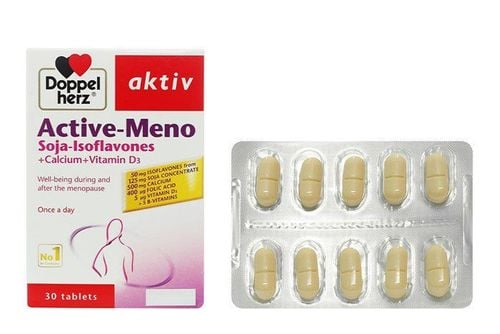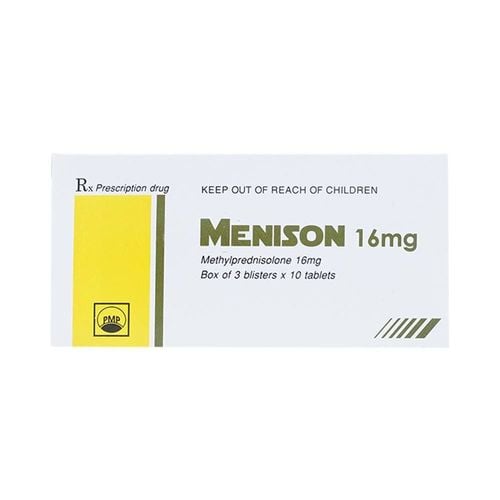This is an automatically translated article.
Some menopausal women may experience skin changes, such as itchy skin. Itching can occur during perimenopause and continue immediately after menopause. So what is the cause, how to treat and prevent?
1. Menopause and itchiness
Perimenopause is the 8 to 10 years before menopause. Menopause ends when you have not had a period for a year, at which point you enter post-menopause.
The hormonal changes that occur during menopause can cause many unpleasant symptoms such as hot flashes, mood swings, vaginal dryness, and night sweats. During menopause, hormonal changes include the loss of estrogen. Estrogen is involved in the production of collagen, an essential structural component of the skin. Estrogen is also involved in the production of natural oils that help keep your skin moisturized. The lack of collagen and natural oils can cause your skin to become thin, itchy.
Itchy skin can appear on any part of the body, but occurs most often in:
Face. The four limbs. Neck. Chest. Back. You may also experience itching in the elbows, T-zone of your face, and other skin changes, such as:
Acne. Rash. Skin pigmentation. Wizen. There are rarer conditions that you can also experience during menopause, such as paresthesia. Paresthesia is a tingling, numbness, or “stinging” sensation in the skin. Some women may also experience the sensation of insects crawling on their skin.
2. What should you do when you have symptoms of itching during menopause?
You can see a doctor if symptoms of itchy skin persist for three days or more. Your doctor will ask you how long the itchy skin has persisted and what parts of the body are affected?
In particular, the doctor may also conduct tests to rule out any other serious medical conditions that are causing the itching. These tests may include:
Blood tests. Check thyroid, liver and kidney function. Chest x-ray.
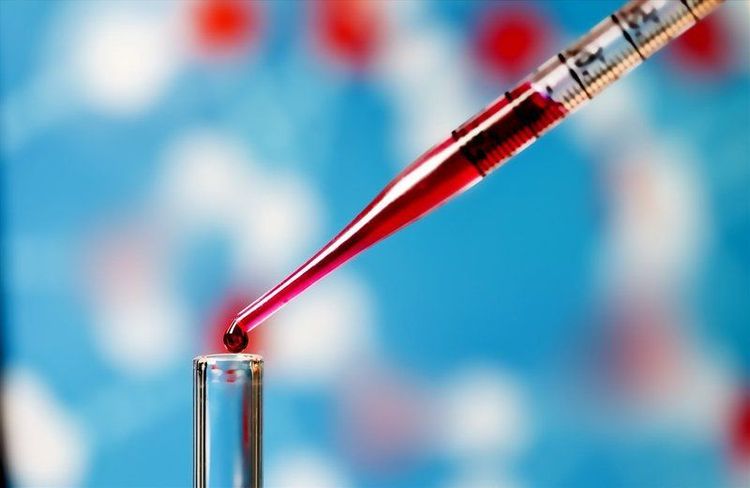
Xét nghiệm máu để chẩn đoán nguyên nhân ngứa ở thời kỳ mãn kinh
3. Home Remedies for Itchy Menopause
There are many home remedies that you can try to relieve itchy skin as follows:
Oatmeal bath Colloidal oatmeal can be found in many natural bath and beauty products.
Add colloidal oatmeal to a warm bath. Avoid using water that is too hot, as it can dry out and irritate your skin. Soak for at least 10 minutes and dry your skin after bathing. Oatmeal can help relieve itching and soothe the skin.
Moisturizer High-quality moisturizer keeps the skin warm. This helps the skin stay hydrated in its outermost layer, which can help alleviate dryness and itching.
Aloe vera gel or calamine lotion can also be used to treat such unpleasant symptoms.
Vitamin C Vitamin C plays an important role in creating collagen in the skin. Vitamin C can aid in the repair of damage and help prevent dry, thin, itchy skin. Supplement vitamin C by:
Oral supplements. Supplement foods like citrus fruits and tangerines Apply topically with over-the-counter beauty treatments. Herbal supplements Herbal supplements may help relieve menopausal symptoms.
Some herbal supplements, like dong quai, act like phytoestrogens, helping to replenish estrogen in the body for a short time. Other herbal supplements, like maca root, can encourage the body to produce natural hormones.
However, it is important to discuss with your doctor any herbal supplements you want to take. Because some herbal supplements can interact with prescription drugs.
4. Medical treatment
In some cases, applying home remedies may not be enough to control itchy skin. Therefore, you need to use over-the-counter or prescription drugs and medical procedures.
Over-the-counter (OTC) anti-itch cream You can go to the pharmacy and buy an OTC hydrocortisone cream with as little as 1%. The cream helps to soothe inflamed, itchy skin.
Prescription corticosteroids Your doctor may prescribe a topical corticosteroid to treat inflamed, itchy skin. Prescription corticosteroids may include hydrocortisone or many other corticosteroids of varying strengths. They can be used in many forms such as sprays, gels, creams.
Hormone replacement therapy (HRT) HRT is a popular treatment for many of the symptoms of menopause, including itchy skin. However, HRT therapy can carry some health risks and side effects such as:
Breast swelling. Bloating. Skin color change. Increased risk of gallstones. Urinary incontinence . Vaginal bleeding. Increased risk of uterine and breast cancer. HRT may also increase the risk of heart disease, although studies have not been consistent. Therefore, talk to your doctor for the best treatment option for you.
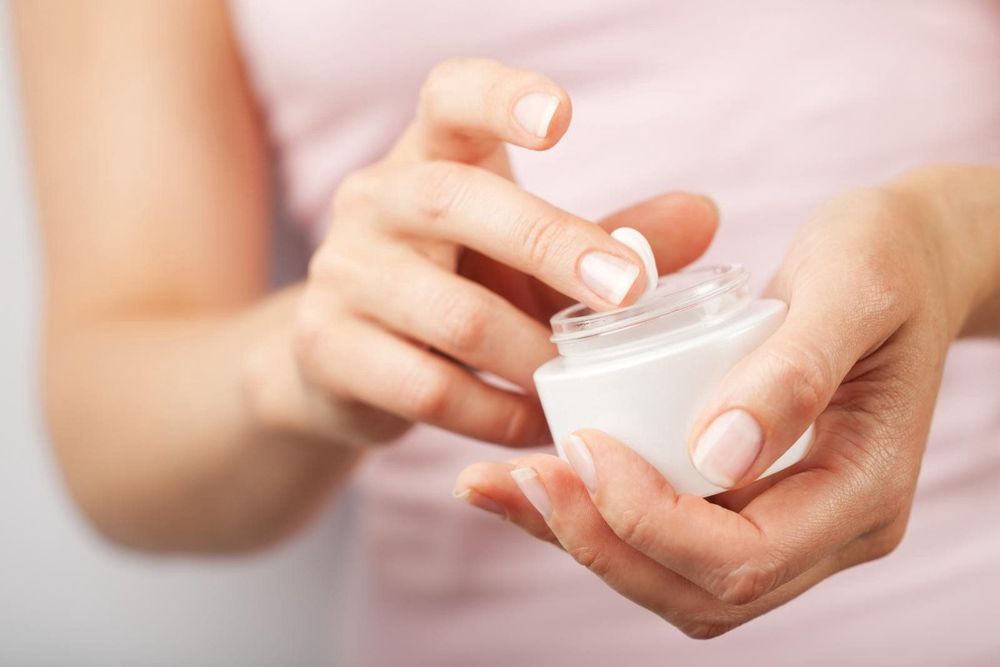
Có thể sử dụng kem bôi kê đơn để điều trị ngứa ở thời kỳ mãn kinh
5. Prevention of itchy skin during menopause
Some methods that can help you prevent or reduce the risk of itchy skin are as follows:
Balanced nutrition A healthy diet rich in natural foods is essential for healthy skin . Staying hydrated is also important to keep skin soft and moisturized. Some supplements have been shown to benefit the skin such as: Oral and topical Vitamin C, gamma-linolenic acid (GLA) like evening primrose oil, collagen peptides, omega-3 fatty acids.
Avoid hot baths Showers or soaks in hot water strip away the essential oils needed for soft skin. Bathing in warm water, using a gentle soap, and moisturizing are all important for preventing menopausal itchy skin.
Avoid scratching Although you may want to scratch the itchy areas, try to avoid as much as possible. Consider using a cool compress to keep the area closed, this will help relieve pain. Trim nails carefully, neatly and wear gloves at night to avoid scratching while sleeping.
Have a healthy lifestyle Should sleep a lot, get proper rest, reduce stress, apply sunscreen daily, avoid smoking and alcohol use, especially exercise regularly to help regulate hormones
Phenomenon Itchy skin is a symptom of menopause. There are many home and medical treatments available to help ease those uncomfortable symptoms. However, the symptoms of itchy skin during menopause will subside as soon as the cycle is over, so you don't need to worry too much.
In case skin itching persists and affects your life much, go to a medical facility for proper examination and advice by a doctor.
Currently, Vinmec International General Hospital is providing pre-menopausal health examination and counseling package. When registering for an examination package, customers will be examined and consulted with a specialist in Gynecology; Perform tests to assess hormone status. When registering for the pre-menopausal health care package and consultation package, customers will receive:
Gynecological examination. Gynecological examination, breast examination. Transabdominal ultrasound of the uterus and ovaries. Take the specimen for cervical-vaginal cytology. Mammogram (2 sides). Measure osteoporosis. Perform other tests to detect perimenopausal conditions, if any.
Please dial HOTLINE for more information or register for an appointment HERE. Download MyVinmec app to make appointments faster and to manage your bookings easily.
Reference source: healthline.com



